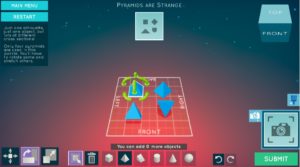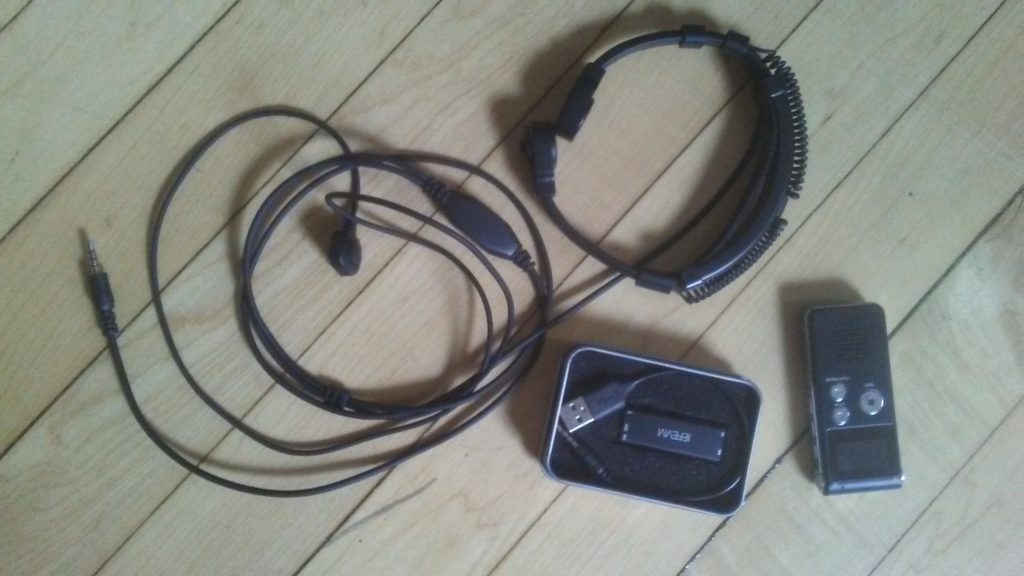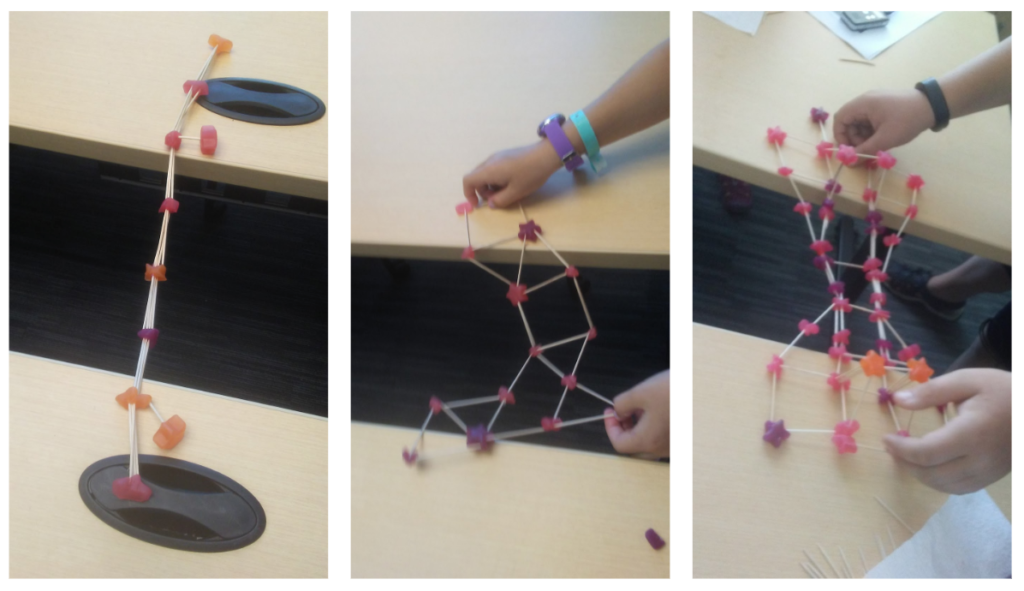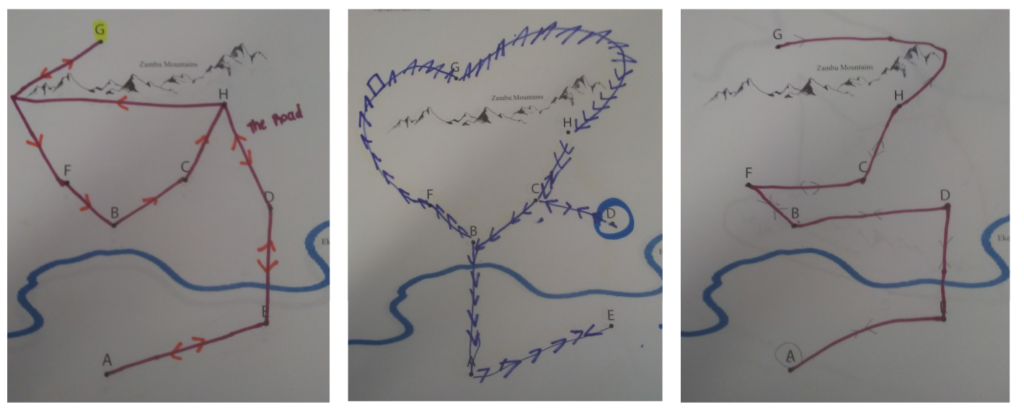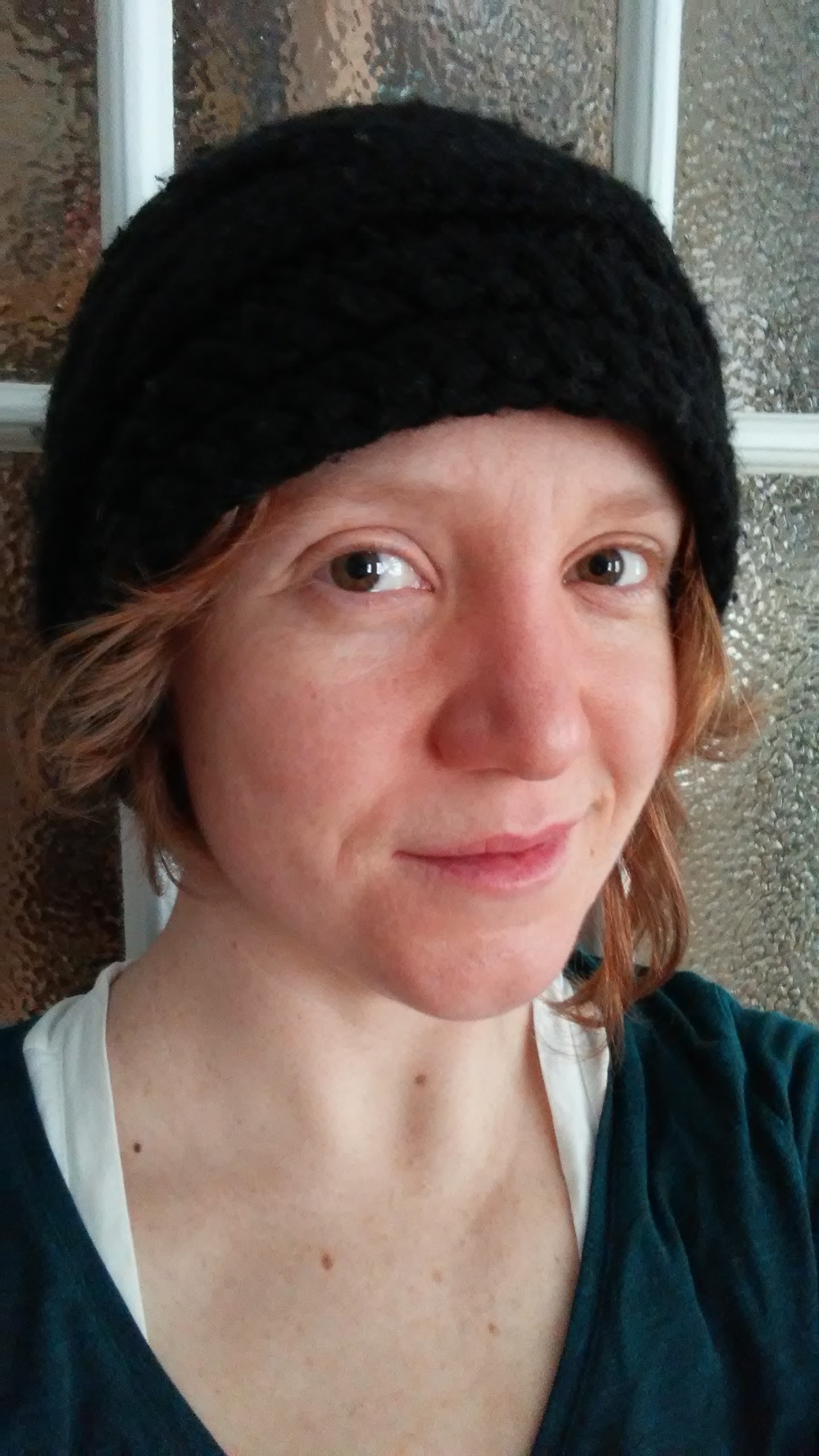
Shadowspect Lesson Plans
Over the summer Kate helped share our geometry game Shadowspect with teachers in both Somerville and the SEPT program at MIT. This gave her inspiration to create a set of lesson plans or activity ideas that teachers can use to incorporate Shadowspect into their teaching. One activity challenges students to use 3D shapes to model things like a starfish, a car, and the U.S. Capitol building. Another asks them to recreate a sequence of transformations that a classmate has devised. And there are also ideas for how to explore domain-specific ideas using Shadowspect, including chemistry, engineering, literature, and more. All 5 activities are aligned with Common Core geometry standards. Try them out yourself, and feel free to share with teachers you know!
Assessing Creative Process
In conjunction with her PhD work, Kate also spent her summer experimenting with different methods of capturing audio data during collaborative problem solving activities with middle school students. Collaboration in hard to measure and one source of evidence for the types of social interactions on a team is their conversation—how much do they talk, who is talking, what kinds of exchanges are they having? If we could capture students’ speech and automate the process of analyzing it, we might gain insight into their different ways of working together on creative projects. This could open doors to give more effective feedback as they build these important skills.
Kate ran playtests where kids came to MIT to play through three different collaborative activities, during which she tried an array of microphones to see which ones kids were comfortable with and which ones provided usable audio. She did the same with a larger group at a local community center to try the setup in a setting more similar to a middle school classroom. She’ll be conducting a larger study this fall, but you can check out her preliminary results from the playtest data and read about her experience and why she’s so excited about this research!


